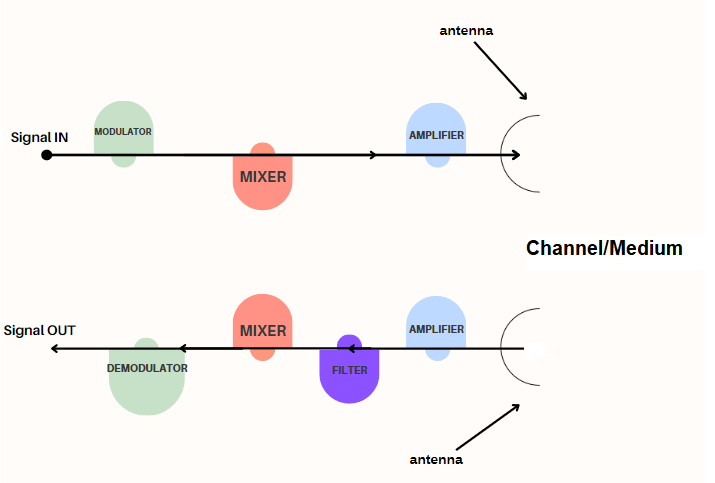FM RADIO Full Form
What is the full form of FM?
FM is an abbreviation for Frequency Modulation, which refers to encoding the audio signal on the carrier frequency. FM is a method or technique of encoding details about a given analog or digital signal by varying the frequency of the carrier wave according to the frequency of the modulating signal. Modulating a signal is the same as a message which has to be transmitted to an electronic signal after being modified. In Frequency Modulation, the carrier frequency signal is modified to the message signal, whereas the amplitude, phase and amplitude are maintained constant.
Working Principle
In an FM radio system, the audio signal is first converted into an electrical signal by a microphone or other audio input device. The electrical signal is then passed through a modulator, which modulates the frequency of a carrier wave according to the variations in the electrical signal. The modulated carrier wave is then transmitted through an antenna, and the signal is picked up by an FM radio receiver.
The FM radio receiver contains a demodulator, which demodulates the modulated carrier wave and converts it back into an electrical signal. The electrical signal is then passed through an amplifier and a speaker, which reproduces the original audio signal.

Use Of FM
FM is most often used in radio broadcasting. FM provides a high benefit in radio transmission as it has a larger signal-to-noise ratio which implies minimal interference with radio frequencies. It is because of this crucial reason that all radio stations prefer to use FM to broadcast music over the radio.
Advantages
Less interference and sound.
Power consumption is less when compared with Amplitude Modulation.
Guard bands separate adjacent FM channels.
Limitations
The cost of machinery is high, and it has a wide bandwidth.
The receiver is a small FM signal.
For optimal interaction, the antennas need to be kept close to FM systems.